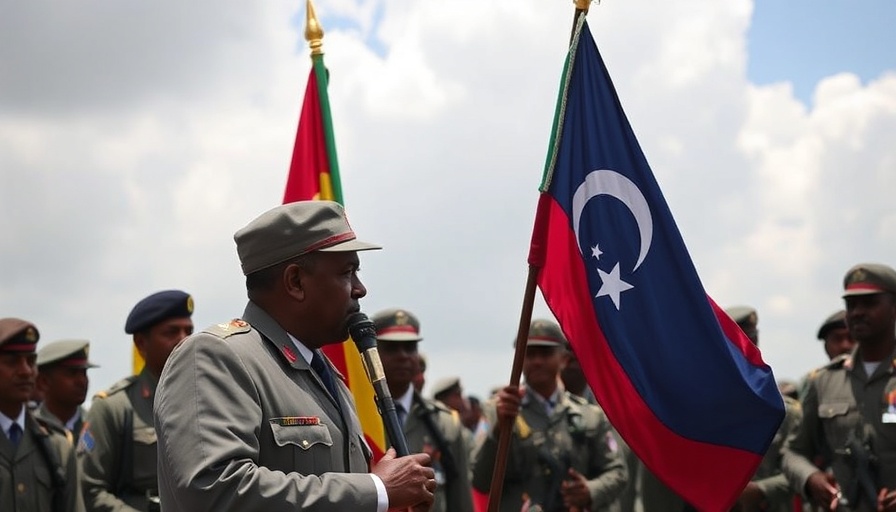
Diplomatic Maneuvers: Ethiopia and Eritrea's Fragile Pact
Recent statements by Ethiopian Prime Minister Abiy Ahmed and Eritrean President Isaias Afwerki highlight a commitment to avoiding conflict between their nations. However, the absence of a long-term peace agreement raises concerns about the stability of this fragile relationship. Prime Minister Abiy reiterated Ethiopia's need for access to the Red Sea, describing it as a matter of survival for one of Africa's largest populations, with over 120 million people.
Historical Context: The Legacy of Tension
The historical antagonism between Ethiopia and Eritrea has roots in a lengthy conflict that lasted until a tentative peace treaty in 2018. In some ways, this era of peace remains precarious, particularly as Ethiopia grapples with rising dissent in regions like Tigray. Tigray’s Interim President, Getachew Reda, has recently accused local rivals of collaborating with Eritrean forces. This suggests a lingering mistrust that could easily destabilize the peace.
Geopolitical Implications: The Red Sea Access Debate
The Prime Minister's statement underscored a significant geopolitical concern. Ethiopia's quest for sea access creates potential friction not only with Eritrea but also with neighboring states like Somalia, Djibouti, and Kenya. Leaders emphasize this shared resource of the Red Sea should not become a matter of territorial contention but rather a cooperative economic opportunity for the region. However, the specter of competition remains as each country maneuvers for its interests.
Looking Ahead: The Path to Sustainable Diplomacy
Dialogue between Ethiopia and Eritrea is vital for long-term peace, demanding a focus on development rather than conflict. Abiy's intentions to develop economic ties reflect a broader desire among African nations to harness regional stability for growth. For business leaders and policymakers, understanding these dynamics is critical for positioning themselves advantageously in the evolving landscape of African geopolitics.
Final Thoughts: Why Continued Vigilance Matters
While Ethiopian and Eritrean leaders publicly seek to de-escalate tensions, the situation remains volatile as underlying issues persist. Investors and policymakers should remain vigilant, considering the potential ramifications for the African economy and regional stability as these dynamics evolve in the coming months.
 Add Row
Add Row  Add
Add 


 Add Row
Add Row  Add
Add 

Write A Comment